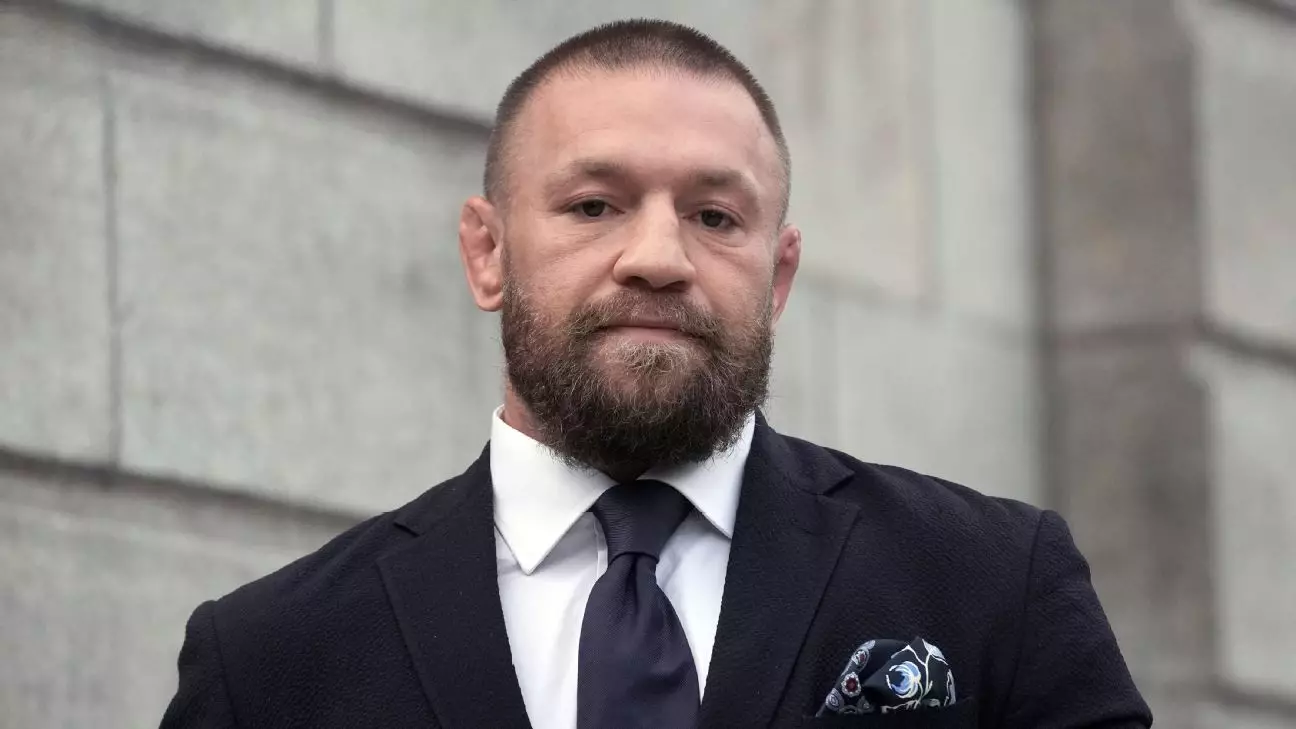In a Dublin courtroom, the spotlight is sharply focused on Conor McGregor as he faces serious allegations stemming from an incident that took place in December 2018. The former UFC champion is accused of sexually assaulting a woman, alongside another individual, James Lawrence. As the legal proceedings unfold, McGregor’s vehement denial of the charges raises questions about the nature of consent and the implications of celebrity culture in legal matters.
The allegations, introduced last week during the trial, claim that the plaintiff experienced non-consensual sexual interactions with both McGregor and Lawrence after meeting them post-work Christmas party. The woman testified that, following a night of socializing where alcohol and drugs were present, McGregor allegedly coerced her into a bedroom in a Dublin hotel and assaulted her. Statements from her attorney, John Gordon, emphasize her state of mind during the encounter, referring to her as “full of drugs” and on antidepressants, suggesting her ability to consent may have been compromised.
Taking the stand for the first time on the sixth day of the trial, McGregor’s defense hinges on a complete rejection of the woman’s testimony. He referred to her claims as “full of lies,” stating that his encounter with her was entirely consensual. Moreover, he responded aggressively to the allegations of violence, specifically denying acts such as holding her in an armlock and causing bruising. This stance not only contests the specifics of the incident but also reflects a broader challenge faced by defendants in high-profile cases—public perception often intermingles with legal proceedings.
A critical point raised during the trial involves the evidence surrounding the alleged assault. The woman sought medical attention shortly after the incident, and doctors noted concerns significant enough to warrant photographic documentation of her injuries. The interplay of this medical documentation and the testimonies presented will undoubtedly influence the jury’s perception, as they weigh the credibility of conflicting accounts.
This trial not only examines the personal lives of those involved but also serves as a reflection of broader societal issues regarding consent, masculinity, and the impact of fame on judicial processes. The framing of the case as a he-said-she-said scenario presents an overarching commentary on how cases of sexual assault are often contested in a public arena, particularly when celebrity is involved.
As the trial continues, with the judge informing jurors that proceedings may last up to two weeks, the focus will remain on the dynamic of evidence, witness credibility, and public perception. McGregor’s trial highlights not only the personal ramifications for the individuals involved but also the critical discussions around consent, accountability, and the power dynamics present in celebrity culture. The outcome will have lasting ramifications for all parties and could influence future conversations surrounding similar cases in the public eye.

